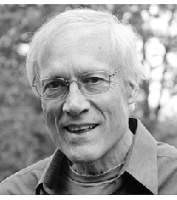John 4
John 4:1-22:
What then shall we say that Abraham, our forefather, has discovered?
If Abraham was indeed justified by works, he had something to boast about, but not before God.
For what does the Scripture say? “Abraham believed God, and it was credited to him as righteousness.”
Now the wages of the worker are not credited as a gift, but as an obligation.
However, to the one who does not work, but believes in Him who justifies the wicked, his faith is credited as righteousness.
And David speaks likewise of the blessedness of the man to whom God credits righteousness apart from works:
“Blessed are they whose lawless acts are forgiven,
whose sins are covered.
Blessed is the man
whose sin the Lord will never count against him.”
Is this blessing only on the circumcised, or also on the uncircumcised? We have been saying that Abraham’s faith was credited to him as righteousness.
In what context was it credited? Was it after his circumcision, or before? It was not after, but before.
And he received the sign of circumcision as a seal of the righteousness that he had by faith while he was still uncircumcised. So then, he is the father of all who believe but are not circumcised, in order that righteousness might be credited to them.
And he is also the father of the circumcised who not only are circumcised, but who also walk in the footsteps of the faith that our father Abraham had before he was circumcised.
For the promise to Abraham and his offspring that he would be heir of the world was not given through the law, but through the righteousness that comes by faith.
For if those who live by the law are heirs, faith is useless and the promise is worthless,
because the law brings wrath. And where there is no law, there is no transgression.
Therefore, the promise comes by faith, so that it may rest on grace and may be guaranteed to all Abraham’s offspring—not only to those who are of the law, but also to those who are of the faith of Abraham. He is the father of us all.
As it is written: “I have made you a father of many nations.” He is our father in the presence of God, in whom he believed, the God who gives life to the dead and calls into being what does not yet exist.
Against all hope, Abraham in hope believed and so became the father of many nations, just as he had been told, “So shall your offspring be.”
Without weakening in his faith, he acknowledged the decrepitness of his body (since he was about a hundred years old) and the lifelessness of Sarah’s womb.
Yet he did not waver through disbelief in the promise of God, but was strengthened in his faith and gave glory to God,
being fully persuaded that God was able to do what He had promised.
This is why “it was credited to him as righteousness.”
What then shall we say that Abraham, our forefather, has discovered?
If Abraham was indeed justified by works, he had something to boast about, but not before God.
For what does the Scripture say? “Abraham believed God, and it was credited to him as righteousness.”
Now the wages of the worker are not credited as a gift, but as an obligation.
However, to the one who does not work, but believes in Him who justifies the wicked, his faith is credited as righteousness.
And David speaks likewise of the blessedness of the man to whom God credits righteousness apart from works:
“Blessed are they whose lawless acts are forgiven,
whose sins are covered.
Blessed is the man
whose sin the Lord will never count against him.”
Is this blessing only on the circumcised, or also on the uncircumcised? We have been saying that Abraham’s faith was credited to him as righteousness.
In what context was it credited? Was it after his circumcision, or before? It was not after, but before.
And he received the sign of circumcision as a seal of the righteousness that he had by faith while he was still uncircumcised. So then, he is the father of all who believe but are not circumcised, in order that righteousness might be credited to them.
And he is also the father of the circumcised who not only are circumcised, but who also walk in the footsteps of the faith that our father Abraham had before he was circumcised.
For the promise to Abraham and his offspring that he would be heir of the world was not given through the law, but through the righteousness that comes by faith.
For if those who live by the law are heirs, faith is useless and the promise is worthless,
because the law brings wrath. And where there is no law, there is no transgression.
Therefore, the promise comes by faith, so that it may rest on grace and may be guaranteed to all Abraham’s offspring—not only to those who are of the law, but also to those who are of the faith of Abraham. He is the father of us all.
As it is written: “I have made you a father of many nations.” He is our father in the presence of God, in whom he believed, the God who gives life to the dead and calls into being what does not yet exist.
Against all hope, Abraham in hope believed and so became the father of many nations, just as he had been told, “So shall your offspring be.”
Without weakening in his faith, he acknowledged the decrepitness of his body (since he was about a hundred years old) and the lifelessness of Sarah’s womb.
Yet he did not waver through disbelief in the promise of God, but was strengthened in his faith and gave glory to God,
being fully persuaded that God was able to do what He had promised.
This is why “it was credited to him as righteousness.”
 Richard Baxter
Richard Baxter
“Remember the perfections of that God whom you worship, that he is a Spirit, and therefore to be worshipped in spirit and truth; and that he is most great and terrible, and therefore to be worshipped with seriousness and reverence, and not to be dallied with, or served with toys or lifeless lip-service; and that he is most holy, pure, and jealous, and therefore to be purely worshipped; and that he is still present with you, and all things are naked and open to him with whom we have to do. The knowledge of God, and the remembrance of his all-seeing presence, are the most powerful means against hypocrisy.”
― Richard Baxter

One of our first lessons in the school of prayer must be to understand what it is to pray in spirit in truth, and to know we can attain it. It is only through Him that the worship of God will be in spirit and truth. Because God is Spirit, we must worship in spirit. As God is, so is His worshipper. And so worship in spirit is worship in truth; actual living fellowship with God, a real correspondence and harmony between the Father, who is a Spirit, and the child praying in the spirit. This is the new and living way Christ opened up for us. To have Christ the Son, and the Spirit of the Son, dwelling within us, and revealing the Father, this makes us true, spiritual worshippers. --From the writings of Andrew Murray

Our worship does not benefit God but it does change us. Worship establishes a Divine relationship that quenches our thirst for His presence.
Praising God, giving thanks and obeying Him are all aspects of worship that heal us. Our bowing and prostration show our humility and submission. Such sincere adoration produces a dynamic response deep within our heart that strengthens us.
Our affirmation of faith is a continuing vow to obey, worship and trust God, in exchange for security, for an anxiety-free life and, ultimately, for salvation.
Spiritual healing starts by correcting a temporary mental disorder, but continues into treating a human condition we all suffer. The spiritual foundation upon which we lean provides constant therapy that sustains and maintains us.
It is in the process of being worshipped that God communicates His presence to men. [C. S. Lewis, Reflections on the Psalms, p. 93]. Our dedicated worship serves to exercise our spiritual muscles while fortifying our psychological fragility. These exercises shape the pattern of our devotional life and provide a psychological structure for our relationship with the Divine.
It is the LORD your God you must follow, and him you must revere. Keep his commands and obey him; serve him and hold fast to him. [Deuteronomy 13:4].
The error-ridden mind cannot return to childish innocence. It can, however, regain its confidence and direction through the spiritual healing offered by God’s mercy. By connecting to the Divine Reality through sincere worship, we restore contact with God, and we resume the sacred relationship that we, ourselves, severed.
Praising God, giving thanks and obeying Him are all aspects of worship that heal us. Our bowing and prostration show our humility and submission. Such sincere adoration produces a dynamic response deep within our heart that strengthens us.
Our affirmation of faith is a continuing vow to obey, worship and trust God, in exchange for security, for an anxiety-free life and, ultimately, for salvation.
Spiritual healing starts by correcting a temporary mental disorder, but continues into treating a human condition we all suffer. The spiritual foundation upon which we lean provides constant therapy that sustains and maintains us.
It is in the process of being worshipped that God communicates His presence to men. [C. S. Lewis, Reflections on the Psalms, p. 93]. Our dedicated worship serves to exercise our spiritual muscles while fortifying our psychological fragility. These exercises shape the pattern of our devotional life and provide a psychological structure for our relationship with the Divine.
It is the LORD your God you must follow, and him you must revere. Keep his commands and obey him; serve him and hold fast to him. [Deuteronomy 13:4].
The error-ridden mind cannot return to childish innocence. It can, however, regain its confidence and direction through the spiritual healing offered by God’s mercy. By connecting to the Divine Reality through sincere worship, we restore contact with God, and we resume the sacred relationship that we, ourselves, severed.




